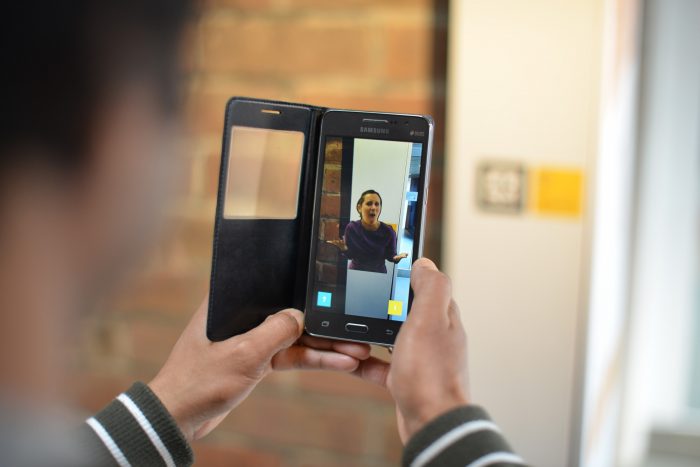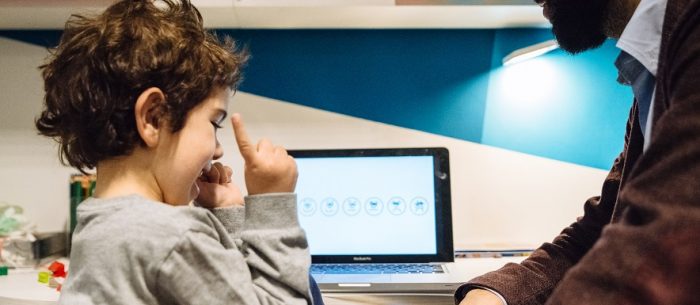The Fourth Industrial Revolution is upon us. Globally, societies are transforming rapidly due to technological change. Trends such as digitalisation, automation and artificial intelligence are changing the way we live, reshaping the labour market and altering the structure of the economy in fundamental ways.
Digital / ICT-based businesses, the creative industries, high tech manufacturing, and knowledge-intensive services are creating increasing value for the economy, driving and taking advantage of technological progress. Low tech, labour-intensive manufacturing and routine jobs in service sectors are being disrupted.
In response, this year’s European Social Innovation Competition aims to ‘reboot’ equality and ensure everyone in Europe can harness and benefit from technological change.
The Competition has selected ten Finalists with innovative solutions to improve the way we live and work. They present inclusive technologies, ideas for supporting workers and ways of organising, learning and living in a changing economy.
The ten Finalists were selected from a shortlist of 30 semi-finalists by our judging panel, out of almost 800 entries from more than 40 countries. The Finalists will pitch at the Awards Ceremony in Brussels on 26 October 2017 to win one of three €50,000 prizes.
Anna Sienicka, Vice President Europe Techsoup and member of the 2017 jury commented:
“As a jury, we were excited by the diversity and scope of all the shortlisted projects this year. They prove that social innovation will help to make our world more equal and fit for the future. All 10 finalists are fantastic examples of the types of tools, services and models that enable people, regardless of their specific context and environment, to seize the opportunities of the digital revolution.”
The Finalists
The Finalists are rethinking the way we work or even proposing the overhaul of entire economic systems. Basic income currency from Bulgaria proposes a radical new economy, creating basic income through daily negative interest. Power of Language is an online tool that enables people with impairments (such as not being a native language speaker) to apply for work through digital application processes that may otherwise be complex and inaccessible. Worker-owned Apps for Cleaners is a project aiming to pilot a worker-owned platform app to empower cleaners to cooperate, connect to market demand, flexibly organise their work, earn higher wages and share profits.

Looking at the way we live in a changing economy, Buildx aims to democratise housing production through open source digital technologies that put the power to build affordable housing into the hands of communities themselves. CollAction is a platform to solve ‘Collective Action Problems’ (situations where it is in the interest of the group to work together, but in which coordination is difficult) through ‘crowdacting’, where people pledge to take action together and form a critical mass that can make a big difference to the problem. SEED is creating a peer-to-peer learning platform where anybody can be an educator and where the value in learning is measured by the community.

A number of our finalists have developed assistive technologies that enable people with disabilities to use digital products. Feelif is a multimedia tool for blind and visually impaired people which enables them to feel shapes on a standard touchscreen. Mirrorable is an interactive platform that allows rehabilitation therapy at home for children who have suffered brain damage at a very early stage of their lives, with motor level impacts. Mouse4all empowers people with motor disabilities by allowing them to use all the apps in their Android device without touching the screen. Signly is an app which uses augmented reality to display re-recorded sign language videos, enabling access to written content for deaf users.

The Competition
The 30 semi-finalists attended a mentoring Academy in Madrid in July where they worked with experts in social innovation to refine their idea, before pitching to a jury of successful social innovators with expertise in digital innovation and skills development. Over the summer, they worked with an individual coach to develop their business plan. The jury have now critically evaluated each business plan and selected the 10 strongest entries. Three will win €50,000 prizes at the Awards Ceremony on 26 October 2017.
To follow the progress of the Competition and receive the latest updates follow us on Twitter: @EUSocialInnov
The European Social Innovation Competition, launched in memory of Diogo Vasconcelos, is a challenge prize run by the European Commission across all European countries, now in its fifth year. The competition is delivered by a consortium of partners including Nesta, Kennisland, Shipyard, Impact Hub and Matter&Co.
